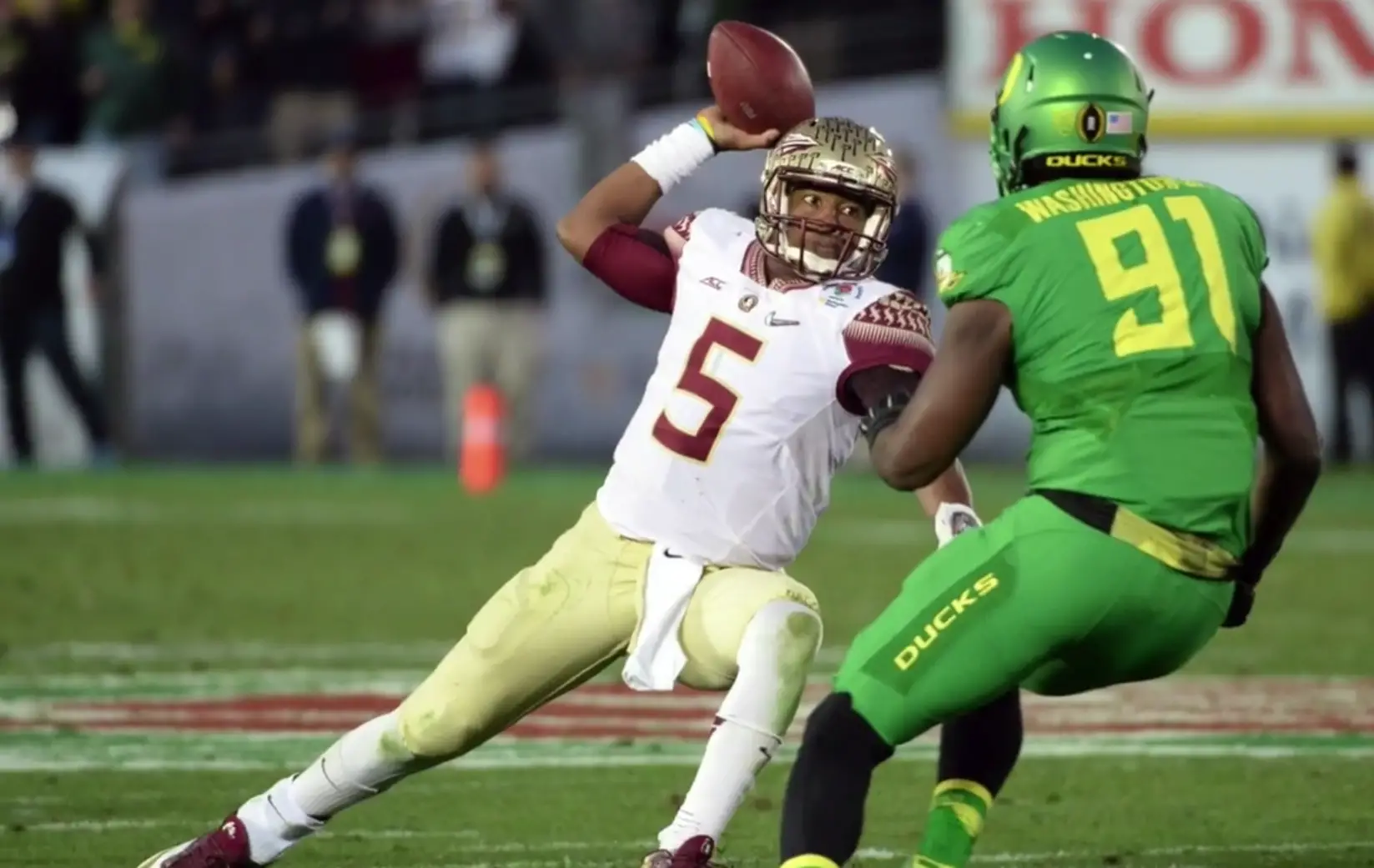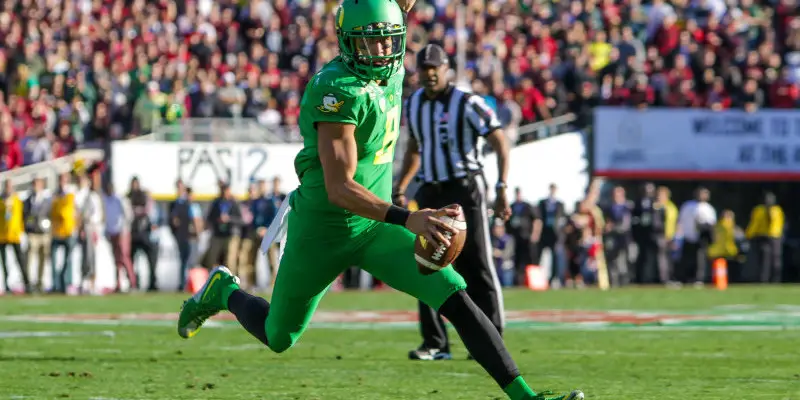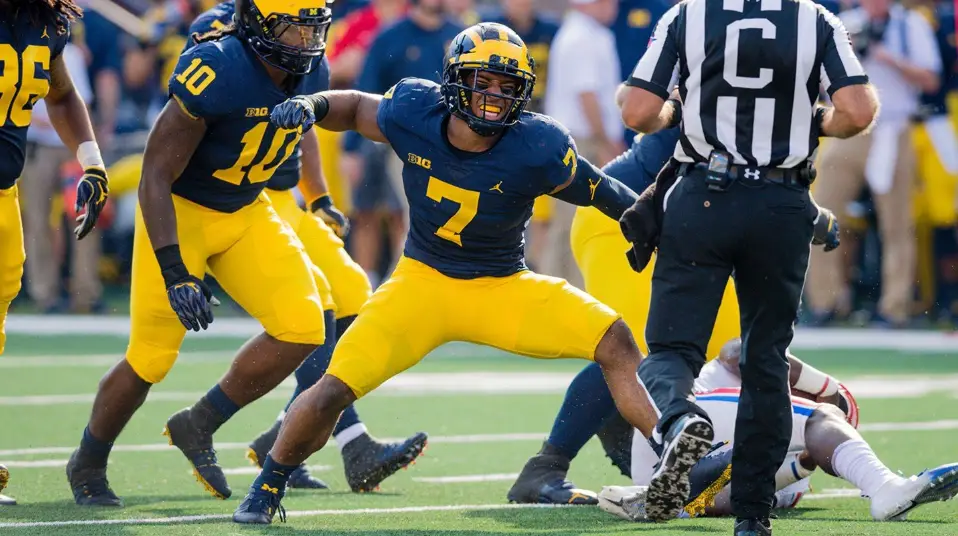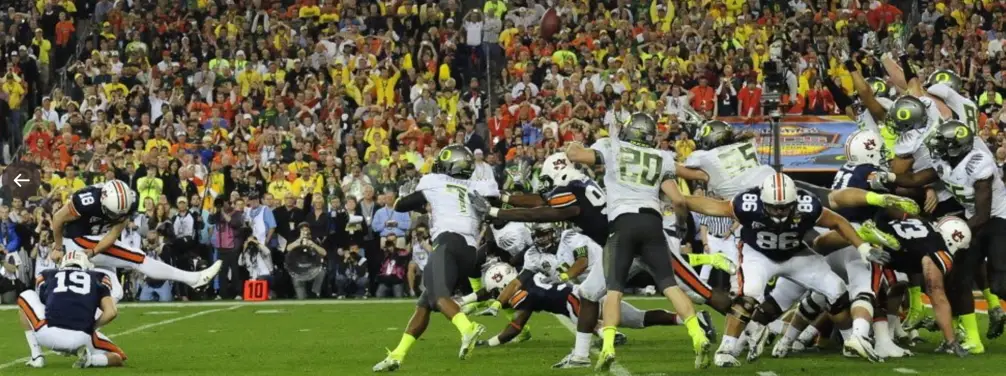Calling the current college football landscape “unfair” would be the understatement of the year.
Things weren’t always this way, as conferences used to be aligned according to the regions of the country, with sensible, and most importantly, balanced schedules. Conference champions weren’t determined in revenue-driven championship games. They were simply awarded to the team that had the best record at the end of the season.
Now, conferences nearly span the width of the country, with heavily biased scheduling and mindbogglingly ridiculous conference championship game matchups.
Last season, we beheld the absurdity of a 7-5 Pitt team playing undefeated Clemson for the ACC Championship (I’m not certain whether Pitt won the ACC Coastal, Atlantic, 3 Rivers, Shot and a Beer, or Caddy Shack Division). If the upset for the ages had happened in this game, Clemson still would’ve gone to the CFP, while Pitt, with five losses, would’ve automatically qualified for the Orange Bowl … Oh my.

Last year, conference divisions gave us this matchup that was… less than fair.
The expansion and bifurcation of conferences paved the way for unfair, roll-of-the-dice match ups. But we’ve still got the College Football Playoffs, right? We’ve got the Gurus of Grapevine, the all-knowing Playoff Committee, carefully measuring the strength of a team’s schedule to assure the best four teams make the Final Four. Right?
In the half-decade Playoff era, a second loss has been the kiss of death regardless of strength of schedule, and the Committee has done little more than parrot the AP’s penultimate poll. The 60-plus AP Poll voters actually reveal how they voted. No one has a clue what the Committee actually debates.
In 2019, all we will hear from Oregon AD Rob Mullens, this year’s Playoff Committee mouthpiece, is, “the Committee believes this” and “the Committee believes that.” Not a single naysayer in the group? Really?
Let’s take a quick look at some of the Committee’s biggest whiffs.
Year one, 2014. Yes, Jameis Winston won the Heisman the year prior. Yes, FSU scraped its way to an undefeated season in an incredibly weak ACC. But do any Duck fans believe that either one-loss Baylor or TCU would not have given Oregon a better semi-final Rose Bowl game than did the bumbling, stumbling, turnover-prone Seminoles?

Were the Seminoles worthy of their chance to play the Ducks in the playoff?
Wasn’t the Committee supposedly formed to look beyond W’s and L’s when choosing the nation’s best four teams?
In 2015, the Committee had the two-loss conference champ Cardinal ranked behind a one-loss Iowa team, giving the Cardinal no credit for losing to top 25 Northwestern in its road opener. Michigan State, another one-loss team, defeated Iowa by three points in the B1G champ game. In the Rose Bowl, Christian McCaffrey returned the opening kickoff for a TD and set the all-purpose yardage Rose Bowl record, and The Tree made the Hawkeyes look downright doveish.
In the playoff semi-final, the Tide crushed Sparty 38-0.
Does this Stanford team defeat eventual national champ Alabama? I doubt it, but the game would have at least been competitive. And McCaffrey battling ‘Bama running back Derrick Henry, that season’s Heisman winner, would have been delicious.
2016. Penn State defeats fellow B1G East division member Ohio State and wins the B1G champ game. So, division and conference champ Penn State represents the B1G in the final four, right?
“Not so fast, CFB fans,” sayeth the Committee. Yes, Penn State defeated the Buckeyes and played 13 games to the Buckeyes’ 12. However, Ohio State lost but one game; Penn State two. Next case.

The Committee doesn’t always make the right choices.
Ohio State went on to be shut out by Clemson in the playoff semi. The Rose Bowl was a classic with Penn State losing to USC in a thrilling comeback engineered by Sam Darnold. Does any CFB fan outside of Columbus, Ohio, believe that Penn State would not have been a more worthy opponent for Clemson?
Look, the NFL has plenty of flaws. But every NFL team will play eight home games and eight away games (excluding trips to London and Mexico City). Last I checked, no NFL team plays an Arena League Team.
Meanwhile, let’s look at some of the disparity in the 2019 CFB schedules.
ACC
I’m not going to bother with the nation’s premier basketball conference, dominated in football by the Clemson Tigers and Dabo-Dabo-Do Swinney. In its four out-of-conference (OOC) games in 2019, Clemson plays two cupcakes but also plays Texas A&M (should have been the 2nd game in the A&M/Ducks home-and-home series) and South Carolina. Alabama also plays both of these SEC teams so it should give us a couple of interesting comparison scores.
Big XII
There are no conference crossover games, so let’s simply look at presumptive title contenders Oklahoma and Texas.
Oklahoma OOC: Houston, South Dakota, at UCLA. Texas OOC: LA Tech, LSU, Rice.
Houston is a very good Group of 5 (G5) program, but LSU in Austin, at least on paper, presents a far bigger challenge than does playing in Chipperville.
B1G
Here we have a scheduling double hose job for two teams predicted to battle for the conference title.
Michigan OOC: Middle Tennessee, Army, Notre Dame. Michigan Cross Over (CO): at Wisconsin, Iowa, Illinois.

Michigan should be good in 2019, but its schedule doesn’t do it any favors.
Ohio State OOC: FAU, Cincinnati, Miami (OHIO). Ohio State CO: at Nebraska, Northwestern, Wisconsin.
This scheduling gives Ohio State both a playoff and conference championship leg-up on the Wolverines.
SEC
This is ridiculous.
Alabama OOC: Duke in Atlanta, New Mexico State, Southern Miss, Western Carolina. Alabama CO: Tennessee, at South Carolina.
Auburn OOC: Oregon (Dallas), Tulane, Kent State, Samford. Auburn CO: at Florida, Georgia.
Bama’s in a knife fight; Auburn, a gun fight.
Pac-12
Think UW has the scheduling edge?
Oregon OOC: “at” Auburn, Nevada, Montana. Oregon CO: CU, at USC, Arizona, at ASU
Washington OOC: Eastern Washington, Hawaii (Aloha!), at BYU. UW CO: USC, at Arizona, Utah, at CU.

The Auburn rematch could prove beneficial for the Ducks’ playoff chances.
Considering just the Pac-12 North, it is to Oregon’s benefit to play CU at home instead of Utah. But when it comes to overall playoff scheduling, UW’s OOC slate in 2019 is a cupcake walk.
With this kind of disparate scheduling, and with the Committee looking only at W’s and L’s, the College Football Playoff cards are stacked. The BCS was SEC commissioner Roy Kramer’s idea, who must’ve heeded John Steinbeck’s advice that “If you find yourself in a fair fight, your tactics suck.” Not surprisingly, the Playoff has materially benefited the SEC while crippling the Pac-12. Proof? Simply compare the financial data for the two conferences prior to the BCS and today. Once out of every three seasons the conference is not guaranteed a dime of Rose Bowl money.
What has the BCS/playoff done to Pac-12 recruiting (with the help, of course, of Tom Hansen, Champagne Larry and a bunch of clueless presidents) on the Left Coast?
Twenty-two of 247 Sports’ top-100 recruits in the 2020 recruiting cycle reside in the West. The Pac-12 has five commits with two leans. All three of the top high school players in Arizona have directed their commitments outside the Pac-12. Urban Meyer is gone, yet Ohio State has three commitments from this group with one lean. USC has one commitment and one lean.
CFB was far better when it was a regional sport. It was certainly far better for the Ducks and the rest of the Pac teams, which each season entered a fair fight for the Rose Bowl. With the cards stacked as they are, the Pac-12’s hope for a National Championship is more fool’s folly than a fair fight.
Jon Joseph
Georgetown, Texas Top Photo by Kevin Cline

Phil Anderson, the FishDuck.com Volunteer editor for this article, is a trial lawyer in Bend Oregon.

Jon Joseph grew up in Boston, Massachusetts but has been blessed to have lived long enough in the west to have exorcised all east coast bias. He played football in college and has passionately followed the game for seven decades. A retired corporate attorney Jon has lectured across the country and published numerous articles on banking and gaming law. Now a resident of Aiken South Carolina, Jon follows college football across the nation with a focus on the Conference of Champions and the Ducks.

